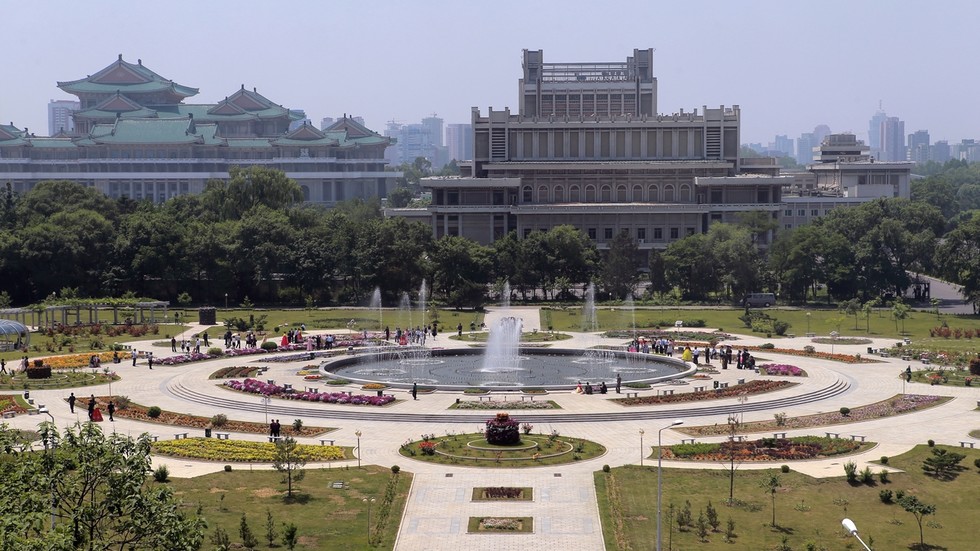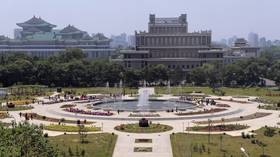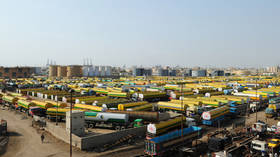
Exports of oil from Moscow to Pyongyang have resumed after a two-year halt, the UN’s sanctions committee says

The Mansudae Fountain Park, Pyongyang, North Korea © Sputnik / Vitaliy Belousov
Russia resumed exports of refined oil to sanctions-hit North Korea for the first time in more than two years last December, the UN Security Council’s Sanctions Committee Panel of Experts on North Korea revealed for the first time on Tuesday.
Russia exported a small volume of gasoline and other light petroleum products to North Korea late last year, along with a shipment of coal, marking a renewal of Moscow’s energy sales to the isolated country.
Moscow supplied a total of 67,300 barrels of refined oil between December 2022 and April 2023, according to data from the UNSC’s Sanctions Committee Panel of Experts on North Korea.
“North Korea stopped importing energy resources and other goods from Russia in [August] 2020 as part of its response to the coronavirus,” head of Russian Foreign Ministry’s Asia Department Georgy Zinovyev said. “We will resume the supply of crude oil and petroleum products in the same amount,” Radio Free Asia quoted him as saying.

Russian petroleum product supplies to North Korea totaled 3,225 barrels in December last year, 44,655 barrels in January and about 10,666 barrels in February. In March and April, Moscow exported some 5,140 barrels and 3,612 barrels respectively.
The UN requires member countries to report on the supply, sale, and transfer of all refined petroleum products to North Korea as part of Resolution 2397, adopted in 2017. The UNSC has also imposed a limit of 500,000 barrels on annual imports of refined petroleum in response to Pyongyang’s long-range missile and nuclear tests.
Russia and North Korea reportedly resumed trade over their sole rail link late last year, JWN Energy said, citing satellite images published by the 38 North website.
Co-operation between Moscow and Pyongyang has gained momentum in recent months. On Tuesday, North Korean Foreign Minister Choe Sun Hui said that “strategic cooperation” between the two countries has never been stronger, characterizing it as a new “heyday” in bilateral ties.
For more stories on economy & finance visit RT’s business section




